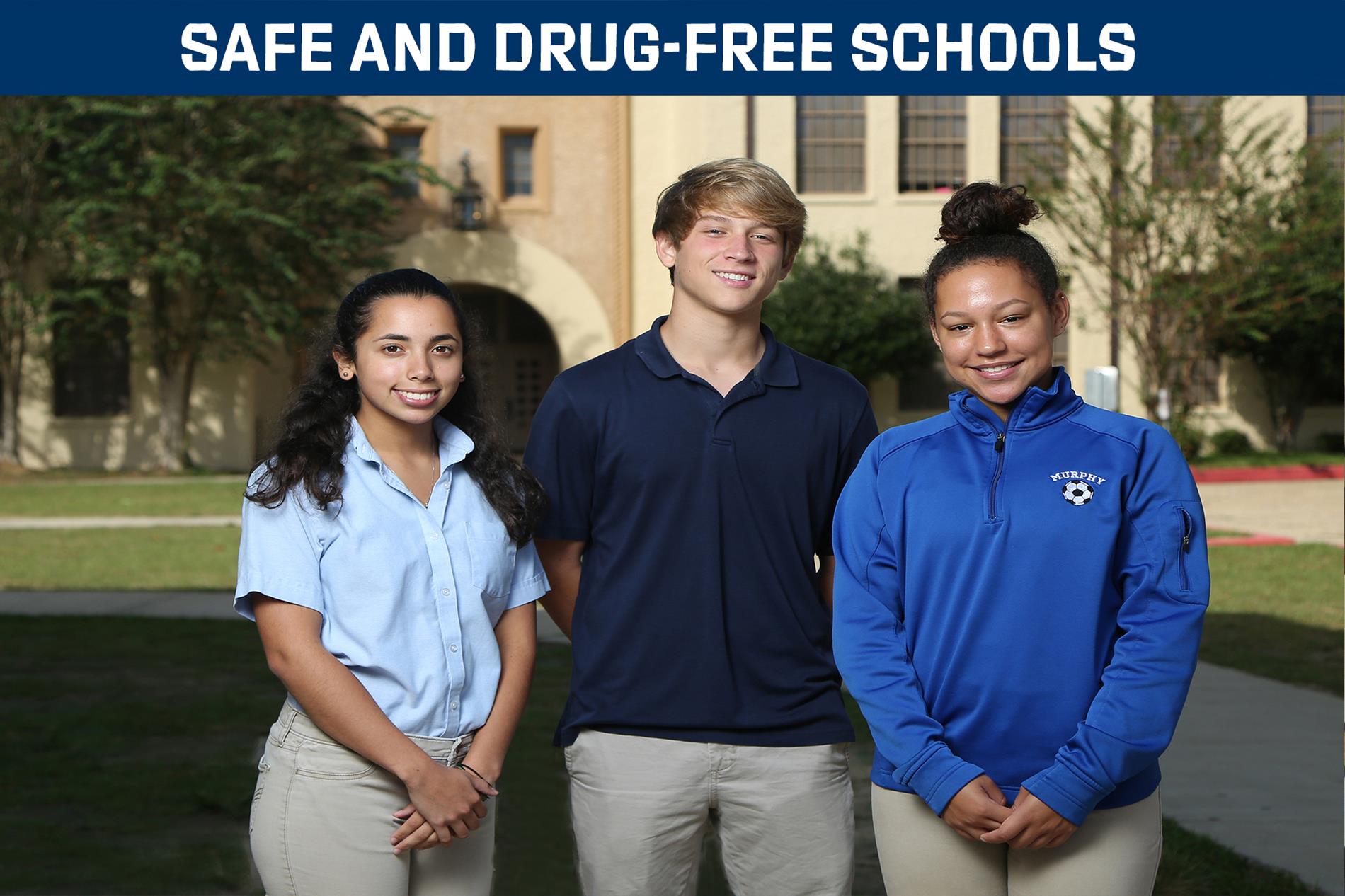
Safety and Security
Local Law Enforcement Agencies
If you see or hear about criminal activity in or around your neighborhood or school district, please notify one of the law enforcement agencies listed below. Click on the name of the law enforcement agency to be linked to the prospective website for more information.
Mobile Police 251-208-1700
Prichard Police 251-452-7800
Citronelle Police 251-866-5227
Satsuma Police 251-675-0151
Chickasaw Police 251-452-0571
Mt.Vernon Police 251-829-6631
Saraland Police 251-675-5103
Bayou La Batre Police 251-824-2757
Mobile County Sheriff 251-574-2423
CHEMICAL ABUSE PREVENTION PROGRAM (C.A.P.P.) AND TOBACCO AWARENESS PROGRAM INFORMATION
Please be advised that the Chemical Abuse Prevention Program (C.A.P.P.) and the Tobacco Awareness Program will begin for the current, 2018-2019 school year at 05:30 p.m., on Thursday, August 16, 2018. As in the past the programs will be conducted at Davidson High School. Also find below a copy of the information sheet for the Chemical Abuse Preventive Program. The information provided in same is also applicable for the Tobacco Awareness Program, with one exception. The exception being that the Tobacco Awareness Program can be completed in one session.
Please review and comply with the following while participating in the Chemical Abuse Prevention Program (C.A.P.P.)
1. There are four sessions. All sessions start at approximately 05:30 P.M. and conclude at approximately 07:30 P.M.
2. No one will be admitted to a session after 05:45 P.M.
3. Successful completion of the program requires attendance and participation in all four sessions.
4. It is recommended that the four sessions be attended consecutively.
5. All youth referrals must be accompanied by a parent, guardian, or responsible adult who must also remain
and participate in each session.
6. It is recommended that the same adult attend with the youth for all four sessions.
7. All participants must be appropriately dressed.
8. All cellular telephones, pagers, or other electronic communication devices must be turned off or placed
on silent and /or vibrate mode-no audible.
9. Food and/or drink cannot be taken into or ingested while in the classrooms during the sessions.
10. Children under six years of age cannot attend the sessions.
Drug and Alcohol Information
Does someone you know need help with alcohol or drug abuse? How can you tell if someone is using drugs? It is difficult because changes in mood or attitudes, unusual temper outbursts, changes in sleeping habits, hobbies or other interests are common in teens. Changes often signal that something troubling is possibly going on that may involve alcohol or drugs. If you discover that someone you know has a drug problem they should contact their family physician, the Drug Education Council, school counselor just to name a few.
WHAT SHOULD YOU LOOK FOR?
Signs and Symptoms
-Negative changes in schoolwork; missing school or declining grades
-Increased secrecy about possession or activities
-Use of incense, room deodorant or perfume to hide smoke or chemical odors
-Subtle changes in conversations with friends, e.g., more secretive, using "coded" language
-New friends
-Change in clothing choices - new fascination with clothes that highlight drug use
-Increase in borrowing money
-Evidence of drug paraphernalia, such as pipes, rolling papers
-Evidence of inhaling products and accessories, such as hairspray, nail polish, correction fluid, paper bags and rags, common household products
-Bottles of eye drops, which may be used to mask bloodshot eyes or dilated pupils
-New use of mouthwash or breath mints to cover up the smell of alcohol
-Missing prescription drugs - especially narcotics and mood stabilizers
-Lack of interest in personal appearance



